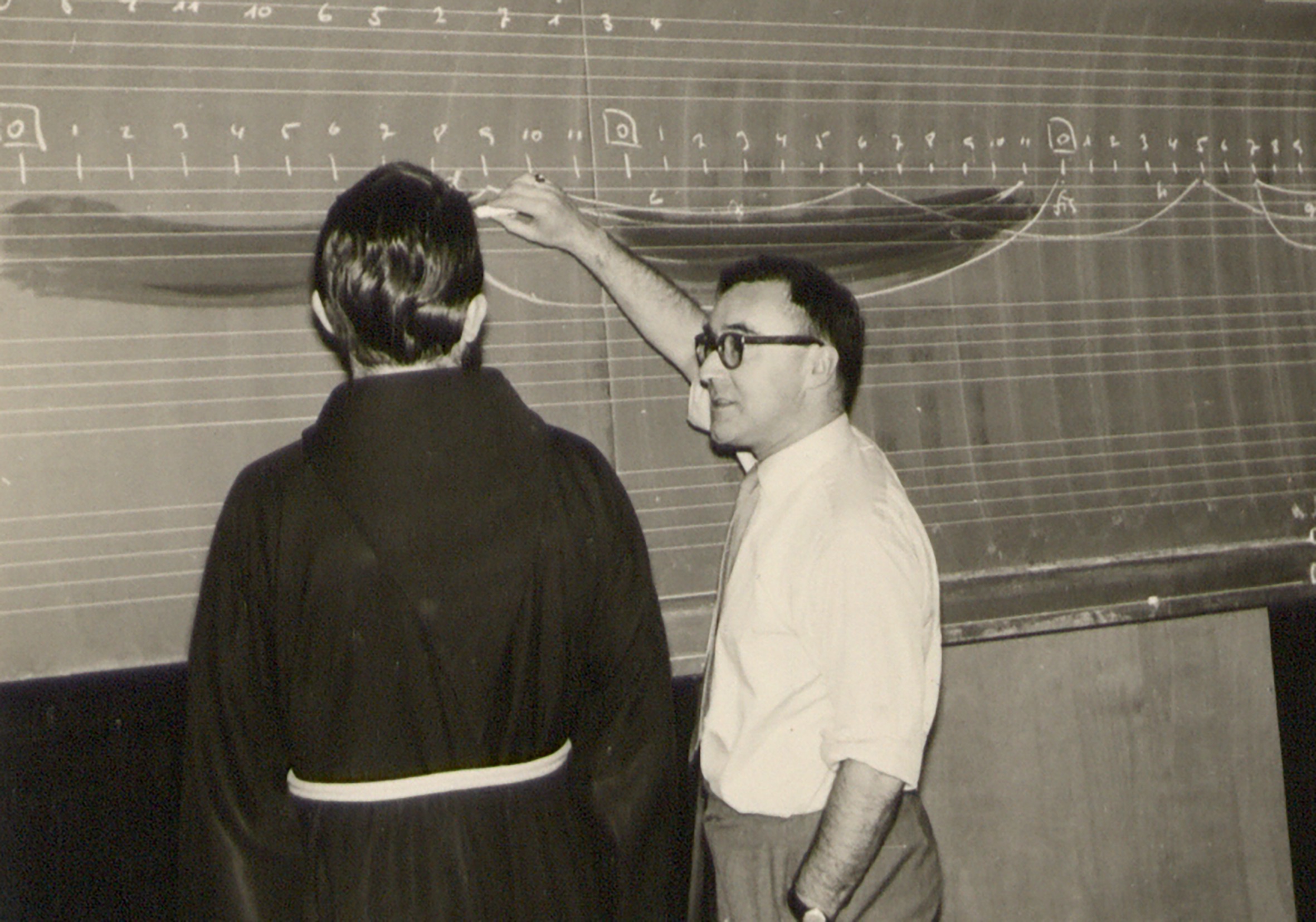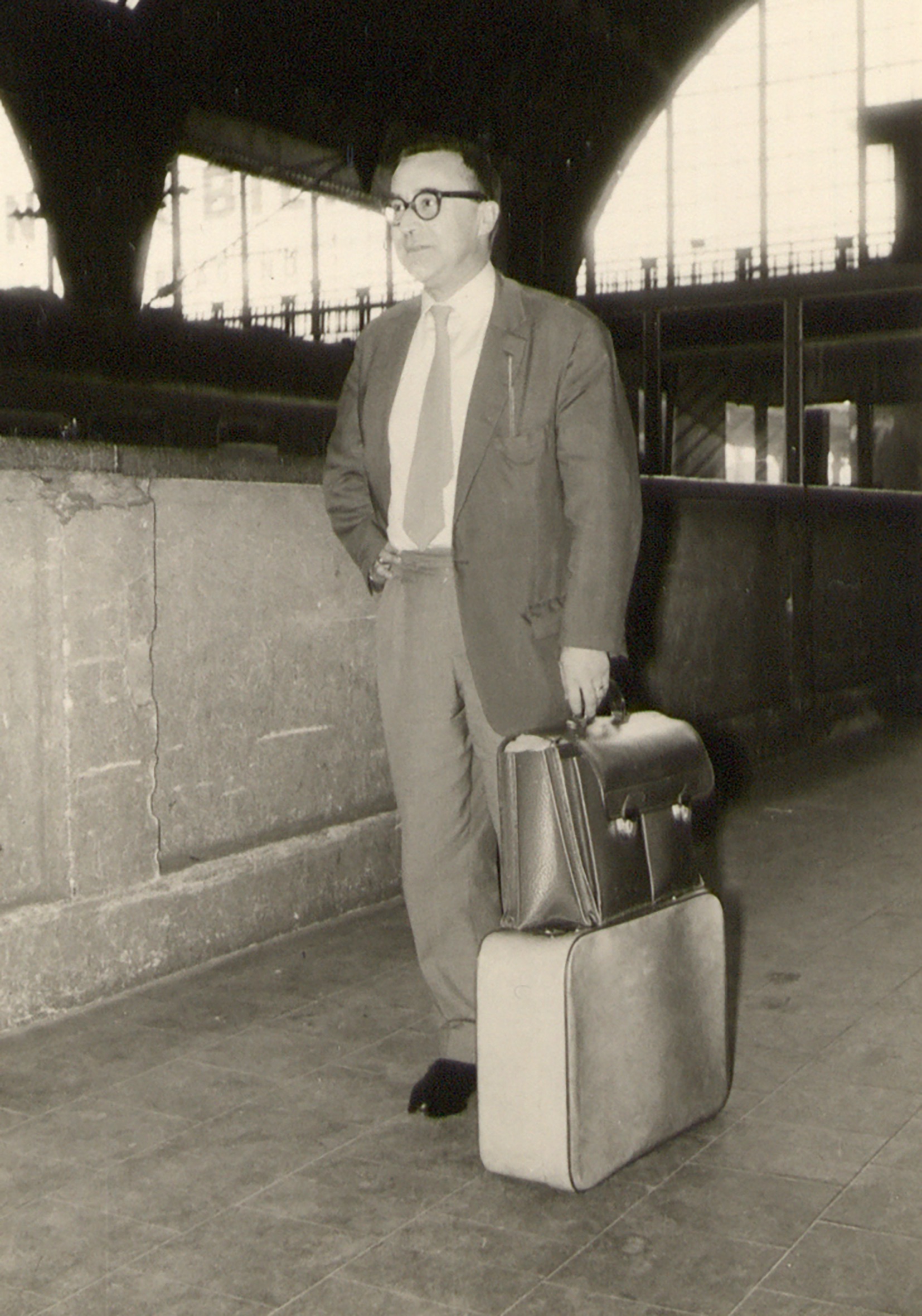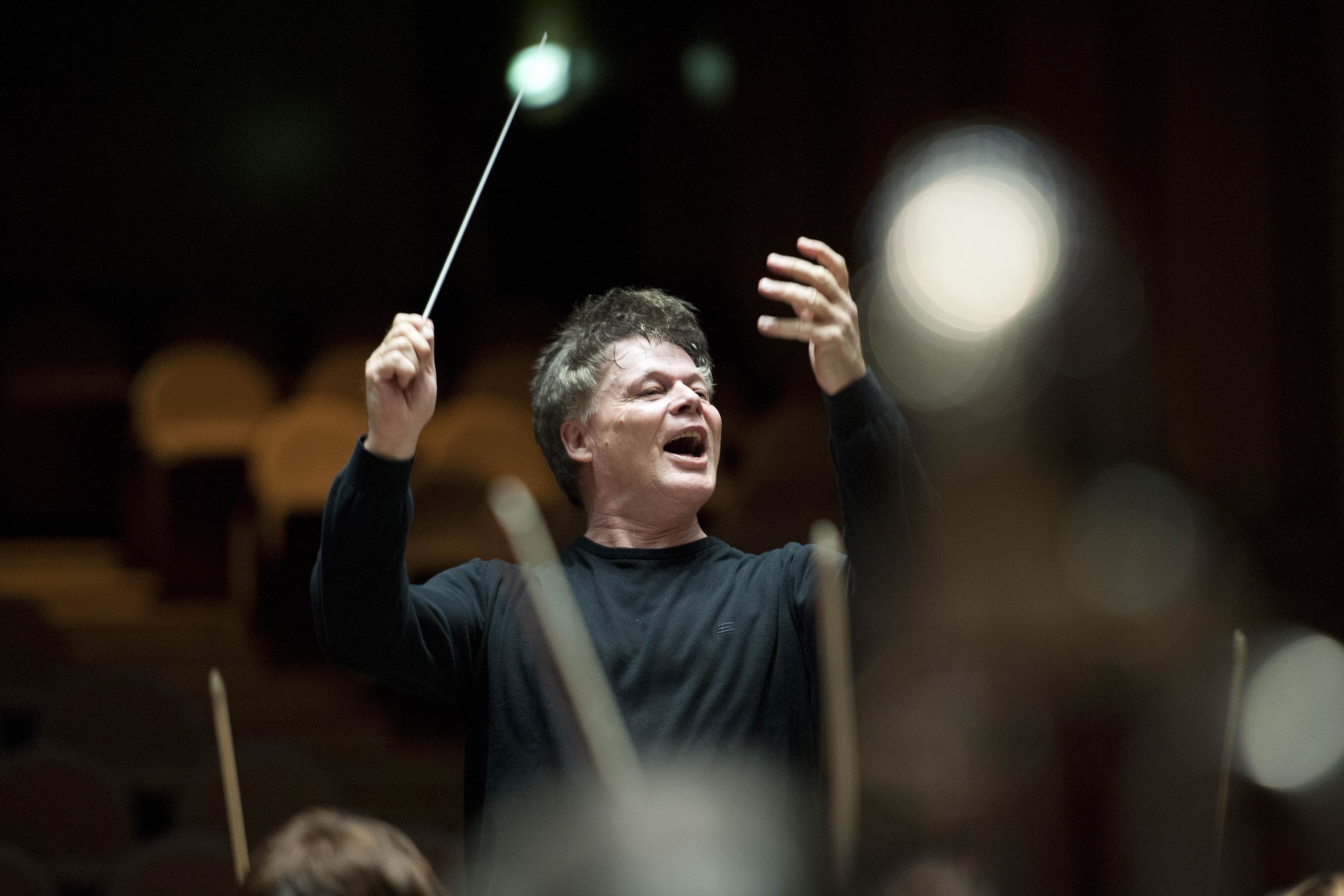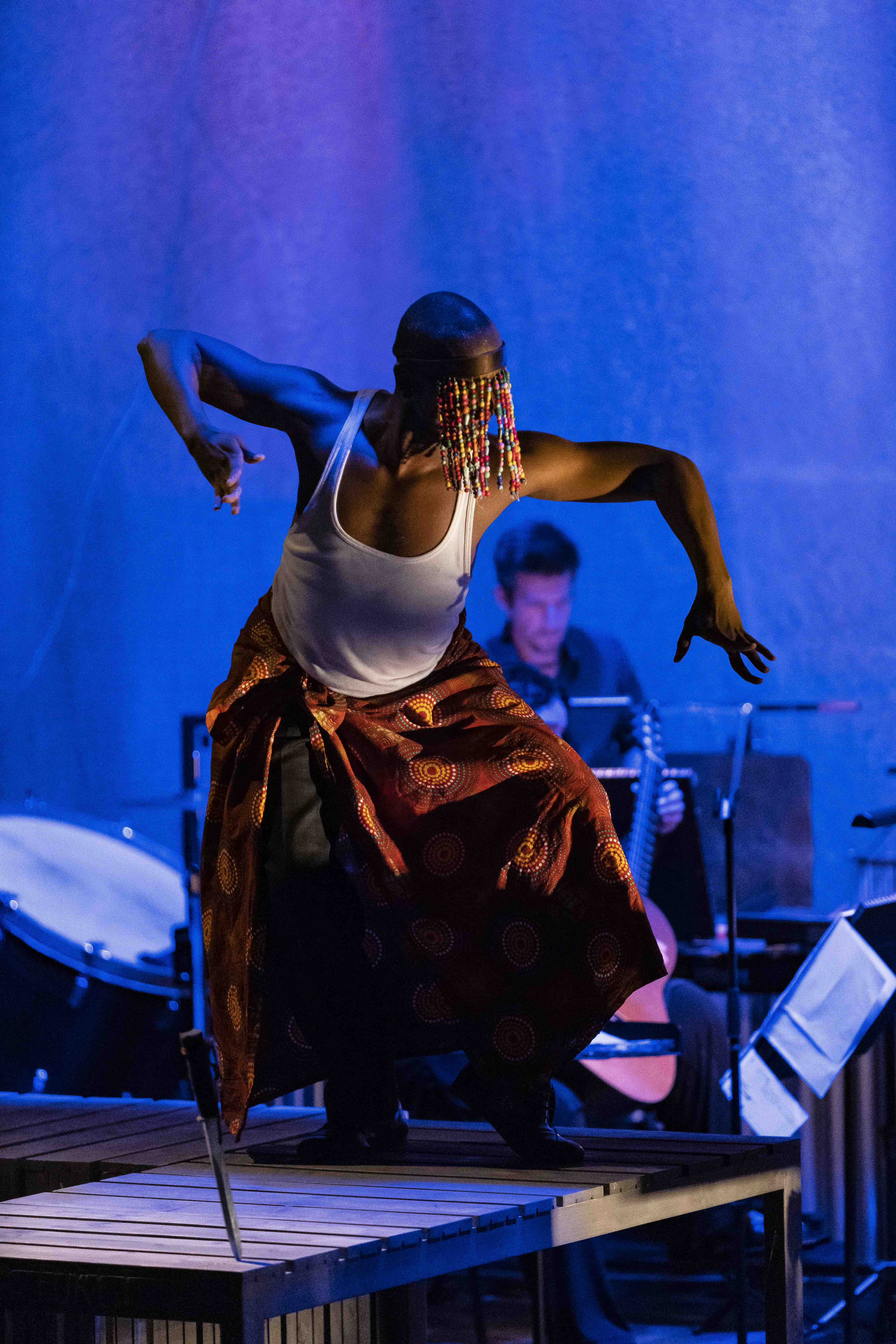Since neo.mx3’s launch, the four SRG stations are gradually making Swiss avant-garde archive recordings accessible. In the meantime, an enormous pool of rare recordings are already available.
This blog draws attention to individual musicians, ensembles and important works, starting with Basel composer Jacques Wildberger (1922-2006) and his relation to Paul Celan.
Corinne Holtz: Jacques Wildberger sets Paul Celan to music
Paul Celan (1920-1970) was born 100 years ago as Paul Antschel in Czernowitz in what was then known as Great Romania. He is one of the German poets whose works have been most frequently set to music and therefore contributed in shaping the history of music for some 50 years. Swiss composer Jacques Wildberger turned to Celan again in his latest work.

In April 1953 a written communication reached the Swiss Musicians Association’s members of the board, concerning the application for membership of Swiss composer Jacques Wildberger. Among the enclosed scores a Trio for oboe, clarinet and bassoon from 1952, written after his strict studies with Vladimir Vogel in Ticino. Wildberger’s first independent twelve-tone works were openly rejected. “No one will ever accept these works. We will never have to hear them and can therefore safely accept them.” This cynical statement comes from Paul Sacher, patron and contemporary music conductor.
Jacques Wildberger: Trio for Oboe, Klarinette and Fagott, 1952, Eigenproduktion SRG/SSR
Sacher had been president of the Swiss Association of Musicians since 1946. He can be considered central regarding music-political handlings and offices at the time and his influence on the Swiss musical landscape will be decisive for the five decades to come.
Jacques Wildberger stands for that 12-tone technique which Sacher describes as “constructed” and “aggressive”. He also represents political views that are considered suspect in the Swiss post-war context. Wildberger had been a member of the PdA (Labour Party) for three years and remained a self-confessed leftist after his departure in 1947 – in protest against Stalin’s regime.
The struggle for the possibility of hope
A central idea in Wildberger’s music is “the struggle for the possibility of hope”. The hope that things will get better and fairer one day. Although secular, Wildberger acknowledges the interpretation presented in Hebrews 11:1, that faith is a sort of confidence in what one hopes for.
This belief was first explored from a compositional angle in 1978, with An die Hoffnung for soprano solo, speaker and orchestra.
Jacques Wildberger, An die Hoffnung (1978/79), Sylvia Nopper, soprano, Georg Martin Bode, speaker, Sinfonieorchester Basel, conductor Heinz Holliger
Most recently in Tempus cadendi, tempus sperandi for mixed choir and six instrumentalists, written in 1998/99 for SWR Stuttgart. The cantata resembles a legacy of the 78-year-old composer. Once again Wildberger composes a memorial for the murdered Jews, with Paul Celan’s poems “Tenebrae” and “Es war Erde in ihnen” forming the centre of the four-part cantata.
Tenebrae seen in Celan’s and Wildberger’s perspective of is breaking taboos. The poet appears sacrilegious in his demand that God must pray, not man. The composer takes this transgression at its word and writes a series of protest songs, thereby returning to the protest songs of his youth, which he had written for the Basel workers’ cabaret ‘Scheinwerfer’ and the Neue Volksbühne Basel.
Jacques Wildberger: Wir wollen zusammen marschieren, Eigenproduktion SRG/SSR

Celan knew the expressive Tenebrae-scores of French baroque composer Marc-Antoine Charpentier, who wrote 31 instrumental “motets concertants” on the lamentations of Jeremiah. Instead of staging anger over the destruction of the Jewish temples, Charpentier composed consoling music for the Holy Week, the darkest days of the liturgical year. Celan was also inspired by Friedrich Hölderlin’s Patmos hymn. From ‘Nah ist und schwer zu fassen der Gott’ (close and difficult to grasp) to ‘Nah sind wir, Herr, nah sind wir, Herr, nah und greifbar” (close and touchable). Then the poet turns to the gas chambers. ‘Gegriffen schon, Herr, ineinander verkrallt, als wär der Leib eines jeden von uns dein Leib, Herr.’ (Seized already, Lord, clawed into our selves as though, the body of each of us were your body, Lord)*. At the end there is an imperative: ‘Bete, Herr. Wir sind nah’ (Pray, Lord. We are near.)
Paul Celan reads Tenebrae
Wildberger picks up this tone and produces the highest intensity with the most economical means in his 2-minute 30-second short movement. Whip strokes from drums and four-handed keyboard open the music and interfere again and again as a signal. Tenebrae’s tempo indication is “agitato” and the speed is set at 108 BPM. God needs the whip to listen. Only then the choir begins: eight voices strong, homophonically led and with rhythmic shifts like an assembly of very different voices. The music is a wake-up call behind the text: ‘Nah sind wir Herr, nah und greifbar’.
In bar 10 the Lord is shouted at fortissimo. Wildberger reinforces the accented note with the performance indication “gridato” (shouted). Five bars long, the fortissimo is “crawled into itself”.
Then a quiet part starts with ‘Bete, bete zu uns’ (Pray, pray to us). The screaming is followed by pleading: sung, spoken and ending in the voiceless ‘nn-ah’ (close). Here, a general pause marks, already at bar 20, the midpoint of the 41 bars piece.
Wildberger starts anew and lets the protest grow step by step from Celan’s line ‘windschief gingen wir hin’ (leaning we went). The music ends like the text as choral imperative: ‘Bete, Herr. Wir sind nah’ (Pray, Lord. We are near).
Wildberger’s height becomes clear once again in his solitary approach to Celan. Instead of transcending the poet and his life drama as usual, Wildberger calls for resistance and action. “I do not have the right to prescribe hope” – but to compose hope he does, with musical means at the height of times.
Corinne Holtz

Other works by Jacques Wildberger can found on his Neo-Profile and Playlist.
Broadcast SRF 2 Kultur:
Musik unserer Zeit, 18.11.20: Lieder jenseits der Menschen – Paul Celan und die Musik, Redaktion Corinne Holtz
listen there: Jacques Wildberger, Tenebrae, from Min 53.36



